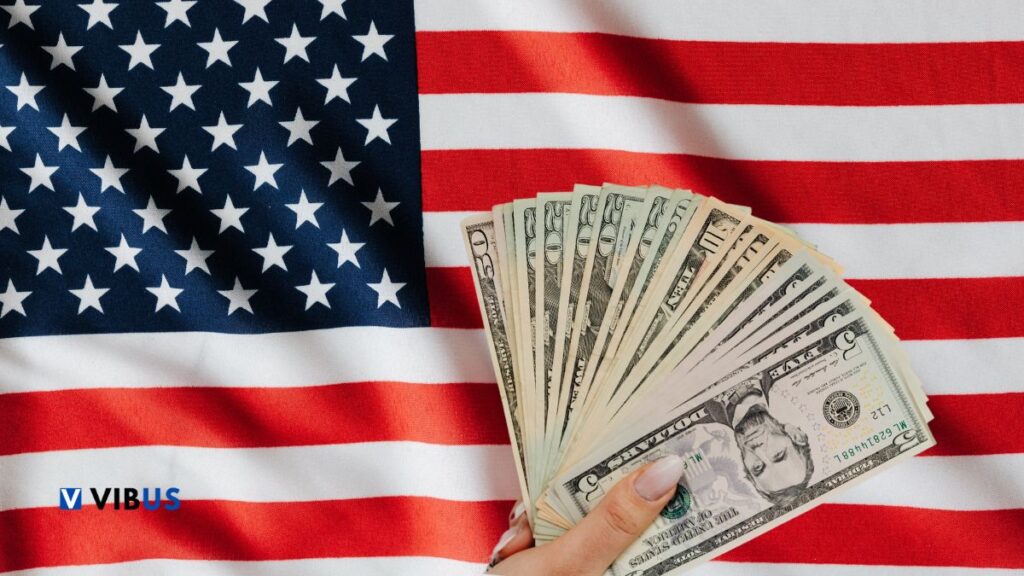In a surprising turn of events, four U.S. states have decided to halt the distribution of stimulus checks starting in August 2024. This move, affecting West Virginia, Wyoming, Idaho, and Kansas, has sparked considerable debate among residents and lawmakers. While some states continue to provide this economic support, others have chosen to end these payments.
Over the past few years, various states have issued stimulus checks to ease the financial strain caused by the COVID-19 pandemic. These payments were primarily aimed at the most vulnerable groups in society, providing financial relief during times of need. Until July 2024, states like California, Alaska, Michigan, New York, Washington, and Texas were still issuing these economic benefits.
Background of stimulus checks
In West Virginia, a new law enacted in May 2024 prohibits cities and counties from distributing stimulus checks or any form of recurring and unconditional monetary assistance. This decision was made to regulate and control the use of municipal and county funds allocated to direct economic assistance programs. Proponents of this law argue that distributing funds without conditions could discourage job-seeking and participation in the labor market.
They also fear these programs might create inequalities between different areas and not be an efficient use of public resources.
Wyoming
Wyoming has followed a path similar to West Virginia’s. In this state, a law has been passed that prevents the issuance of stimulus checks and any universal basic income programs, along with other similar initiatives. The legislation prohibits any form of direct monetary assistance not conditioned on employment or participation in specific programs.
This measure allows pandemic-related aid to continue under certain circumstances but restricts other forms of direct economic support. Wyoming legislators believe these restrictions are necessary to encourage self-reliance and active participation in the local economy.
Kansas
In Kansas, the debate over the distribution of stimulus checks has been intense. Republican lawmakers have pushed for a bill that aims to curb programs that provide direct payments to residents. This proposal has generated controversy and is currently being evaluated in local courts. The primary objective of this measure is to prevent citizens from relying on government assistance for their livelihood.
The law prohibits Kansas cities and counties from distributing stimulus checks or implementing guaranteed income programs with unconditional cash payments. Governor Laura Kelly had previously proposed a one-time tax rebate of $450 for individuals and $900 for married couples filing jointly. This initiative, intended to provide immediate economic relief using the state’s budget surplus, was rejected by the state legislature.
Idaho
In Idaho, a bill similar to those in other states has been introduced. Supporters of this measure argue that distributing public funds through stimulus checks might not be equitable or efficient. This decision follows the trend of previous initiatives in Idaho, where the state has opted for tax rebates and one-time payments instead of recurring stimuli.
During 2022, Idaho distributed direct payments through rebates and other special payments in March and September, using the budget surplus to provide economic relief to residents. However, the new legislation seeks to limit this type of aid in the future.
The reduction of stimulus checks in 2024
In 2023, the economic aid provided by various states began to decline significantly. Although some states continued to issue stimulus checks during the early months of 2024, the general trend has been a reduction in these benefits. By mid-2024, stimulus checks have become increasingly scarce, and the recent decision by four states to suspend these payments reflects this trend.
Impact on residents
The suspension of stimulus checks in West Virginia, Wyoming, Idaho, and Kansas will affect many residents, especially those who have relied on this economic support during the pandemic. These payments have been a crucial source of financial relief for vulnerable individuals, including those with low incomes, the unemployed, or those in precarious jobs.
Critics of the suspension argue that these measures could worsen the economic situation for many families and increase social inequalities. However, proponents of the new laws assert that it is necessary to promote self-sufficiency and reduce dependence on government assistance.
Future outlook
The decision by these four states to suspend stimulus checks raises questions about the future of economic assistance in the United States. While the federal government has discussed the possibility of a fourth nationwide stimulus check, the chances of its approval are currently low. For residents of West Virginia, Wyoming, Idaho, and Kansas, the focus will now be on adapting to the new reality without these benefits. State and local lawmakers will need to seek alternatives to support the most vulnerable citizens and promote economic growth without relying on direct stimuli.
The suspension of stimulus checks in four states starting in August 2024 marks a significant shift in economic assistance policy in the United States. While some states continue to provide this support, the general trend is toward the reduction and eventual elimination of these payments.
The decision by West Virginia, Wyoming, Idaho, and Kansas reflects concerns about the efficiency and equity of direct stimuli, as well as the need to promote self-reliance and labor market participation. As residents of these states adapt to the new reality, it will be crucial to monitor the effects of these policies and consider alternatives to support the most vulnerable.
